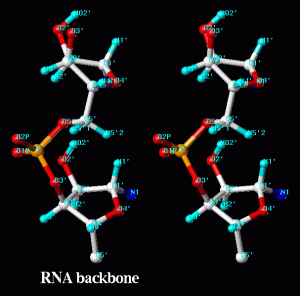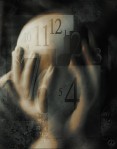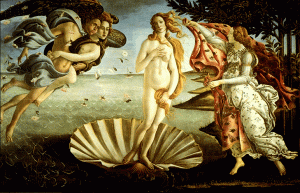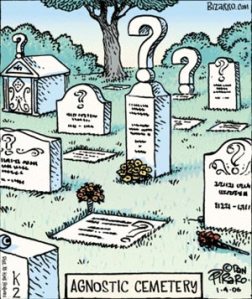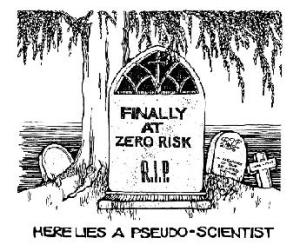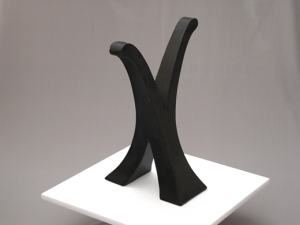
Symbol of Uncertainty
I did not want to bring up this particular argument here at this time, but, after trying to write my next post, I found that I could not effectively make my arguments without laying down these logical foundations first.
What follows is a major rewrite of a section of my haphazard book, “Emergence.” The book itself is quite hopeless, and I would never consider trying to publish it without starting from scratch.
******
In college, I took a class called Philosophy 101 in which I was given an assignment. The assignment I was supposed to do would have involved critiquing or supporting the arguments of St. Thomas Aquinas in his proofs of God’s existence, or of critiquing or supporting a non-saint named W.I. Matson’s arguments against them.
Well, I didn’t know it at the time, but I have been diagnosed with Attention Deficit Disorder (non-hyperactive). This means, among other things, that I have a great deal of difficulty paying attention to arguments that I find to be mind-boggling boring. I did not then, and have not to this day, read either of these arguments. It was my contention at the time that God’s existence could neither be proved nor disproved. So, basically ignoring the assignment, I decided to come up with proofs for these contentions instead.
As a first step, I demonstrated that no proof could ever exist for the nonexistence of God. I called this . . .
The Proof of the Mischievous God
1) Suppose that God exists and that this God is all-powerful and all-knowing.
2) God can, then, influence the human mind and make one believe whatever He wants us to believe. This would certainly fall under the heading of what an all-powerful person could do.
3) God could, for example, cause one to believe a false proof for God’s nonexistence, and to believe it for as long as He so chooses.
4) Therefore, there can exist a situation where a proof of God’s nonexistence exists despite God’s persistent existence.
5) Under these circumstances, the proof would be false
6) There would be no way to determine if these circumstances exist, because God, being all-powerful and all-knowing, could keep us from finding out.
7) Any proof for God’s nonexistence could, therefore, be false beyond our ability to prove otherwise.
8) Since a good proof, by its definition, can never have a false conclusion, it follows that God’s non-existence can not be proved.
At this point in the paper, I pointed out that here, at last, was definite proof of something of a philosophical nature. I also noted that the proof had the really cool side effect of disproving the proofs of virtually everything that man had ever done. All one has to do is insert the appropriate proof name in the appropriate places and watch its truthfulness erode.
I pointed out at this point that I wasn’t stating that I believed that God would actually do anything as mischievous as what He does in the proof, only that He could, and that even this possibility is what makes the proof work.
I went on to point out that probably the one proof that this proof doesn’t disprove is the existence of a proof for God’s existence, which was my original goal. How could it be possible, after all, for a non-existent God to make a proof of God’s existence incorrect.
As I hadn’t thought my paper through, and as I was writing it roughly 6 hours before it was due, I did have a moment of panic at this point. After all, at the beginning of the paper, I promised that I would find a way to not only demonstrate that no proof for the nonexistence of God exists, but also that no proof would ever exist for His existence.
And I didn’t know how to do it.
I knew that such a proof existed. I never doubted it for a second. It just seemed so obvious to me, almost like a gimme. But, now that I had committed myself to the gunfight and was walking the eighth step of the ten paces away from my opponent, I realized that the time had come for me to check to see if I had a gun!
It crossed my mind, briefly to be sure, that if I couldn’t think of a proof that would satisfy me, I might actually have to read the stuff that I was supposed to read! Not only did this run contrary to my sense of ethics, I simply didn’t have the time to properly sit down, analyze the stuff, and then write about it in any way that would most do it justice.
Finally, I seized on a principle that I had gathered from reading science fiction. The more ridiculous and far out the example, the better it can sometimes illustrate the point that needs to be gotten across. A situation that is incorrect at the extremes of reason will show where the same situation falters within the bounds.
To demonstrate that no proof for God exists, therefore, was much more subtle than the Proof of the Mischievous God, and relied on a chain of unlikely events. It was based on the idea that one doesn’t require an all-powerful being to deceive us. That is, a lesser being may be able to get the job done. Human beings can be very gullible sometimes, after all. I called this proof . . .
The Paranoid Principle
1) Let us suppose that God does not exist.
2) Let us further suppose that there exist more advanced civilizations than ours that wish to deceive us, for whatever reason, into believing that our proofs for God’s existence are correct.
2a) As these civilizations are not God, they are not all knowledgeable or all-powerful.
3) Since the civilizations are not all knowledgeable or all-powerful, the possibility exists for us to find a way to disprove the false proof which the advanced civilization could not anticipate or prevent.
4) It is possible, however, that a more advanced civilization could then offer us another proof in which the disproof of the previous proof doe not apply.
5) To this proof, it will be possible to apply 3, and to this, it is possible to apply 4, ad infinitum.
6) We could never be certain that we are not being deceived into believing our proofs until we ourselves become all-powerful and all knowledgeable, at which point the question becomes academic.
The reason why I called this the paranoid proof is that it presupposes that everyone in the universe is against us. The mere fact that this presupposition is ludicrous does not rule it out as being a possibility.
At the end of the paper, I concluded that, in using these two proofs, it is possible to disprove virtually any other proof in the known or unknown universe, and that the mere possibility of a mischievous God necessitates it. I then said that, as these proofs will never get us anywhere in the practical living of our lives, it would probably be best to ignore them and get on with the business of living it.
Well, looking back at it now, I can see an obvious omission in the second proof, in that I never gave reason to support my supposition.
I’m not going to bother to fix this problem now, as I never really did like either proof. The thing that bothered me most about them is that they seemed to work.
My instructor did nothing to dispute them, not really. Other than one comment about Descartes and a few spelling corrections, she did not find fault with my proofs at all. In fact, she told me that I ought to take up philosophy as my trade. She said that the paper was excellent and a lot of fun to read as well: an unusual combination. This gave my ego an extremely unhealthy boost.
But the fact remained that my evidence for there being no proof for God’s existence relied on a bunch of mind-bending Venusians who had nothing better to do than to spend eternity messing wit the earthling brain. It did not seem credible, that the proof for the non-existence of a proof something so overwhelmingly important had to rely on something so absolutely ridiculous.
What was it that made the Paranoid Proof work? What was the work that the aliens were accomplishing that made them seem necessary?
Well, the aliens were fooling us, weren’t they? They were there to make us think that our proofs were correct when in fact they weren’t. They were causing us to be blind with respect to the flaws in our logic.
Was there anything else that could cause us to be blind with respect to flaws in our logic?
Well, that’s no real trick, is it? A large percentage of our population still smokes, despite overwhelming evidence that smoking adds absolutely nothing to our lives and in fact causes us great physical harm. Many of the smokers of the world have managed to justify their habit in some way, but whatever way it is, it is pretty safe to assume that there is a flaw in their logic, somewhere.
And it’s not just the nonscientists that use flawed logic. Scientists used to be able to say quite logically why the sun went around the earth, and more recently, that the planet Mercury always kept just one face to the sun
Even Sir Isaac Newton was wrong, wasn’t he? I mean, Einstein came along later and showed that the Newtonian universe was not quite correct, or, at least it didn’t apply to objects that began to approach the speed of light. Of course, at the time, the speed of light was not really understood. The proper inconsistencies hadn’t been discovered yet. Newton had no reason to suspect . . .
But what were the aliens in the Paranoid Principle? We had no reason to suspect them, either. Weren’t they just an expression of . . . uncertainty?
So it’s obvious that aliens are not needed in order for us to have flaws in the logic of our proofs. Reality and our own lack of total omniscience has a neat way hiding flaws all on its own, doesn’t it?
I thought about this for about two weeks after I turned in my paper. Finally, I had a new idea.
The General Uncertainty Principle
1) Let us suppose that we have created a proof for something, and we believe it to be true.
2) Let us further suppose that there exists a flaw somewhere in our logic in the proof. Perhaps we added two numbers together wrong somewhere and nobody has caught it. Perhaps there is some unknown law of reality operating that would point out an obvious flaw in the proof if we knew about it.
3) As mankind is a thinking and inquisitive species, it is possible that at a later time we will find the flaw in our proof.
4) It is possible, however, that another, more subtle error in our logic still exists in our new proof. Perhaps we still do not have a complete understanding of the necessary laws of reality
5) To this proof, it will be possible to apply 3, and to this, it is possible to apply 4, ad infinitum.
6) We can never be certain that our proofs do not contain some flaw that is beyond our current ability to recognize. Therefore, nothing is provable beyond all possible doubt.
I’ve never called the General Uncertainty Principle a proof, because, if I did, it would have the somewhat ironic effect of disproving itself. I would have preferred to call this idea simply, “The Uncertainty Principle,” but alas, quantum physics was already using that name.
This post has gone on long enough. I will continue with the critiques and implications of these arguments in part 2.
 I remember growing older
I remember growing older


